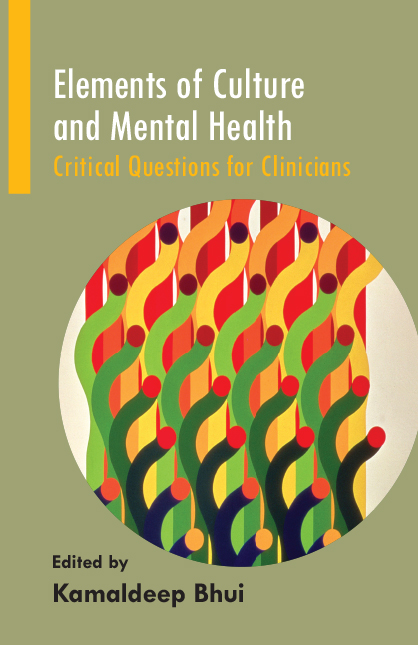Book contents
- Frontmatter
- Contents
- List of contributors
- Foreword: Desire and commitment: essential ingredients in learning about culture and mental illness
- 1 Is trauma-focused therapy helpful for survivors of war and conflict?
- 2 Will ethnopsychopharmacology lead to changes in clinical practice?
- 3 Does cognitive–behavioural therapy work for people with very different cultural orientations and backgrounds?
- 4 Can you do meaningful cognitive–behavioural therapy through an interpreter?
- 5 Are particular psychotherapeutic orientations indicated with specific ethnic minority groups?
- 6 Can psychotherapeutic interventions overcome epistemic difference?
- 7 On the role of culture and difference in evaluation, assessment and diagnosis
- 8 Necessary and sufficient competencies for intercultural work
- 9 On the validity and usefulness of existing Eurocentric diagnostic categories
- 10 Benefits and limitations of the cultural formulation in intercultural work
- 11 Barriers to the intercultural therapeutic relationship and how to overcome them
- 12 How does intercultural interpretation work in the mental health setting?
- 13 Do the power relations inherent in medical systems help or hinder in cross-cultural psychiatry?
- 14 Recovery and well-being: a paradigm for care
- 15 Social perspectives on diagnosis
- 16 Public mental health and inequalities
- 17 Can you do psychotherapy through an interpreter?
- 18 Can race and racism be acknowledged in the transference without it becoming a source of therapeutic impasse?
- 19 Cultural competence: models, measures and movements
- 20 Religion, spirituality and mental health
- Index
Foreword: Desire and commitment: essential ingredients in learning about culture and mental illness
- Frontmatter
- Contents
- List of contributors
- Foreword: Desire and commitment: essential ingredients in learning about culture and mental illness
- 1 Is trauma-focused therapy helpful for survivors of war and conflict?
- 2 Will ethnopsychopharmacology lead to changes in clinical practice?
- 3 Does cognitive–behavioural therapy work for people with very different cultural orientations and backgrounds?
- 4 Can you do meaningful cognitive–behavioural therapy through an interpreter?
- 5 Are particular psychotherapeutic orientations indicated with specific ethnic minority groups?
- 6 Can psychotherapeutic interventions overcome epistemic difference?
- 7 On the role of culture and difference in evaluation, assessment and diagnosis
- 8 Necessary and sufficient competencies for intercultural work
- 9 On the validity and usefulness of existing Eurocentric diagnostic categories
- 10 Benefits and limitations of the cultural formulation in intercultural work
- 11 Barriers to the intercultural therapeutic relationship and how to overcome them
- 12 How does intercultural interpretation work in the mental health setting?
- 13 Do the power relations inherent in medical systems help or hinder in cross-cultural psychiatry?
- 14 Recovery and well-being: a paradigm for care
- 15 Social perspectives on diagnosis
- 16 Public mental health and inequalities
- 17 Can you do psychotherapy through an interpreter?
- 18 Can race and racism be acknowledged in the transference without it becoming a source of therapeutic impasse?
- 19 Cultural competence: models, measures and movements
- 20 Religion, spirituality and mental health
- Index
Summary
The influence of a person's cultural background includes childhood experiences of parenting, rituals and routines informed by religions, and cultural beliefs about the world and the way it works, about supernatural forces and the Gods, and about relationships and emotions. Some people recognise early on in life that their skin colour or their physical appearance, their clothing or their religion's adornments attract curiosity and attention. Sometimes this is hostile, sometimes inquisitive but dismissive, and sometimes it comes of genuine interest to learn about another way of seeing the world.
For Black and minority ethnic groups, discrimination and stigma compound inequalities of the experience and outcome of mental illness. Inequalities arise through interactions between culture/ethnicity and many other factors, such as gender, age and sexuality, not to mention migration experiences, conflict in the country of origin, hostility in the country of arrival, and poverty and social adversity. Such influences exist within and outside formal healthcare systems. Health practitioners are increasingly interested in preventive psychiatry or public mental health, a process of understanding and removing social and environmental determinants of illness, alongside providing health promotion to boost people's capacity to care for themselves and their families.
Cultural practices are known to assist in coping with distress and with interpersonal problems, but they can sometimes also be the source of role conflict and distress within families. The role of cultural beliefs, attitudes and practices is well established in the experience, expression and management of mental distress. Some manage distress through what we might call the lay referral system, which involves the community, the family and local social systems, including religion and spiritual leaders; others enter sanctioned systems of healthcare provision through the self-referral of formal help-seeking.
These cultural influences can pose a challenge for mental health professionals. Mental health professionals work across the interface of many clinical, practical and academic disciplines. Their task is to assess, formulate, diagnose and intervene effectively using the evidence base, and to ensure that interventions are culturally appropriate, acceptable and also ethical – for example, the principles of social justice must be upheld, and human rights and dignity protected. The way they respond to this challenge is mixed.
- Type
- Chapter
- Information
- Elements of Culture and Mental HealthCritical Questions for Clinicians, pp. vii - xPublisher: Royal College of PsychiatristsFirst published in: 2017



